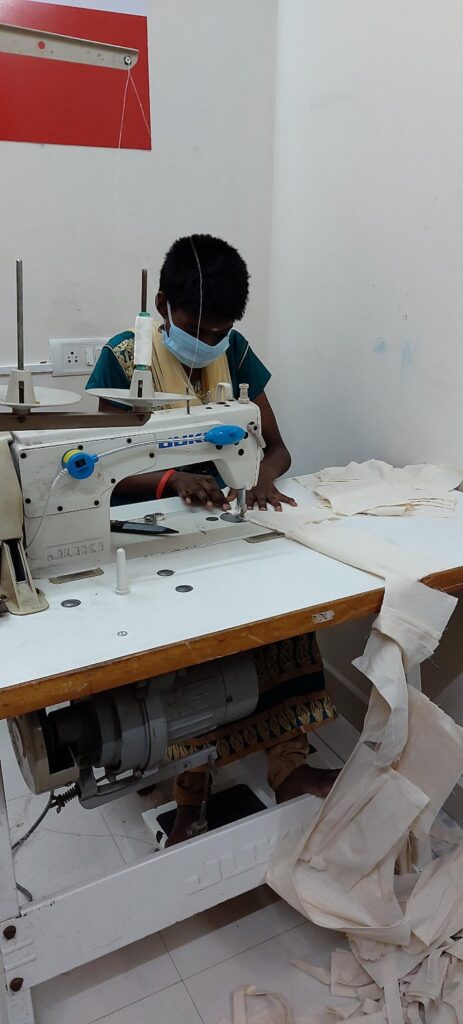Global
EN

Social Innovators Vs COVID-19
Jul 29, 2020 | PANDEMIC
Tired of Covid related articles? Can’t absorb any more negative news? Many of us are, understandably, experiencing a similar sentiment.
Amidst the pain and extreme hardship of the pandemic playing out in its tragic multiplicity – the virus itself, ensuing lockdowns, loss of livelihoods, isolation, mental health issues – the list is endless, overturning our worlds in a matter of a few months. Amidst all of this how can NGOs make a difference?
The impact of their efforts may well be reflected in their willingness and ability to:
- Identify, prioritise and adapt to dynamic needs:
The needs of organizations’ focus groups are constantly evolving now. No matter what their core program was pre-Covid, the first three months of the lockdown were necessarily devoted to ensuring survival of the marginalised population. The social sector, along with governments and civil society stepped up and set-up immediate relief with community kitchens, distribution of ration and hygiene kits whilst ensuring safety and distancing to the extent possible.

Vocational training swiftly adapted to the need of the hour Picture Credits: Sri Arunodayam Trust
With the awareness that the wearing of facial masks are now going to be mandatory, Sri Arunodayam Charitable Trust, a loving home to more than a hundred differently abled, destitute children & young adults in Chennai, nimbly converted a section of their vocational training unit to switch from candle making to creating simple cloth masks for their in-house use as well as distributing to the daily wage earner communities living near their home. This effectively engaged their beneficiaries while addressing the need of the hour.
The need for distancing and thus the absence of personal interaction, which was integral to Yein Udaan’s delivery of their education and holistic development program for economically challenged children, made the founder Vedika Agarwal, think of some ‘novel’ ways of keeping the children gainfully occupied. Zoom sessions involving the parents and siblings too, awareness programmes, fun with art and craft, and regularly checking in on the children’s well-being was quickly organised.
The challenge was the digital divide. Some homes did not have the hardware or had patchy internet connectivity. Vedika requested the families where the parents worked to take printouts of the activities with the instruction sheets and follow through – everyone was more than happy to do their bit and the issue was resolved as best possible under the circumstances.
- Collaborate and share best practises:
Most NGOs are looking at a serious resource crunch in the coming year as donors – corporate and individual – are themselves facing a financial crisis and salary cuts. Simultaneously the needs of the beneficiaries have gone up significantly. NGOs may benefit by resource sharing and collaborating as it will reduce efforts in launching initiatives that may have already been tried and tested. It may also enable smaller organisations to rely on the support and expertise of large-scale mobilisers.
The government has announced several relief packages which require some understanding as well as basic documentation. YUVA, a Mumbai based NGO is committed to helping vulnerable groups as well as help their NGO partners gain access to welfare schemes (registration and job cards under MNREGS), entitlements (such as ration cards) and basic services (access to clean water).

Distribution of ration and hygiene kits to those in need Picture Credits : YUVA – Youth for unity and voluntary action
- Keep track of emerging challenges:
The extended lockdown, loss of employment and inability to access alcohol has led to a disturbingly steep rise in domestic violence. The Maharashtra State Govt. in partnership with TISS (The Tata Institute of Social Sciences) launched a helpline to assist victims of domestic violence on the 1st of April – Mala Bolaicha Hai (I want to speak), and have received more than 46,000 calls from multiple vulnerable individuals on issues including but not limited to depression, abuse and violence.

Art expression of life during lockdown Picture Credits : Yein Udaan
Mental health issues are significantly on the rise. In the absence of visitors and donors to NGO premises, caregivers and staff are increasingly lacking motivation.
With no external recognition for a tough job well done, and the fear factor of contracting the virus, they are likely to burn out. Organising online sessions for them – yoga, motivational resource speakers, interactive awareness sessions on Covid related concerns with medical experts could potentially help mitigate some of these issues.
Policy guidelines, medical protocols, SOP’s are constantly evolving. Each day brings new learning. NGOs, while strengthening their core focus areas and finding innovative channels of delivery, will have to be flexible and sensitive to change.
“And miles to go before we sleep” – this journey is into uncharted territories, but with every stakeholder putting their best foot forward, we will get there.
About the author(s)

SANYUKTA GUPTA
Sources +
 Go back
Go back

